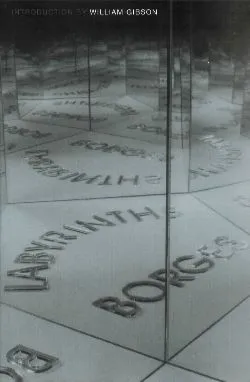
Borges, Borges, Borges–so many of my favorite authors have listed Borges as an influence, and it’s easy to see why. He is a master of the short story, and his essays are something special.
The best stories in Labyrinths are his famous “Tlön, Uqbar, Orbis Tertius” and “Library of Babel.” The unifying factor of these two stories are Borges’s play with metaphysics.
“Tlön, Uqbar, Orbis Tertius” is especially notable on these grounds–particularly the people of Tlön. Inhabitants of Tlön exist in the world in a entirely different manner than we do. They do not have nouns: the essence of a “thing” cannot be spoken. It is only possible to speak of its characteristics–objects are described by their quale and the things that they do, not what they “are.” This is a fascinating idea, and it’s almost therapeutic, for it is allows us to shift our mindset and see the world differently. We are not X thing or Y thing or Z thing, we are made up of various characteristics and do different things, but we “are” not at all.
“The Library of Babel” plays with a lot of the same, and it’s a place of infinite, boundless possibility. There are only 22 characters, and each book is a bit over 400 pages–uniform in size and approximately so in length–but there is a book for every possible combination of characters. This means that the contents are not unlimited, but they seem so.
Both of these stories play on the miraculous, the ineffable, the surreal, and the mysterious. They instill a sense of wonder within me, about what could be.
Moreover, Borges seems to be of the view that there are no individuals–each man is every other man, each woman every other woman. It strikes me as being akin to Freud’s discussion of the dreaming in The Interpretation of Dreams. The subconscious can not distinguish between discrete states, so it is possible for a light to be “on” and “off” simultaneously. We are as indiscrete (and not in a moral or ethical sense) as the Freudian subconscious. This comes through in many stories, including “Theme of the Traitor and the Hero” and “the Immortals.”
Borges also seems to be most interested in what we might term the “Hermetic Arts.” Gnosticism is important here, as is Islamic cosmology, astrology, and other knowledge forms that seem to have died (for the most part) during the Enlightenment. In “The Library of Babel,” he points to the possibility that humankind might be created by a “malevolent demiurge,” while the universe surely is not. Borges breathes life into these old possibilities, and makes them real.
I was particularly pleased that I picked up on so many of Borges’s references, whether his hermeticism, his command of philosophy (both classical and modern), nods to literary figures, and more. His texts are dense with meaning and reference to a long tradition that can only be classified through the broad concept of “the letters.” Borges then rewards his readers for also being well-read in turn. In his story on Averroes, he makes reference to a puzzle that Averroes had to solve: what Aristotle could have possibly meant by “tragedy” and “comedy” in his Poetics. The fact is that there was no theater tradition in the Arab world–there were stories shared and demonstrated by hakawati but nothing comparable to what Aristotle spoke about (which I learned from Roger Allen’s An Introduction to Arabic Literature).
His essays are of more inconsistent quality. The most interesting one, I think, is where he deals with Zeno’s paradox. His essay on the phenomenology of time is also fascinating, but other pieces in here are much weaker.
To summarize briefly, Borges has a unique ability in breathing life into old sources of knowledge and making them modern. In many ways, he seems to be a bridge between interwar surrealism and postwar magical realism. Still, there are so many authors who have been influenced by Borges, and–if nothing else–he’s worth reading for that purpose. More importantly for me, he brings back the magic that I felt when reading literature when I was young. It’s a feeling that I think I’ve been chasing after for years, and I felt it as I read the best Borges stories.